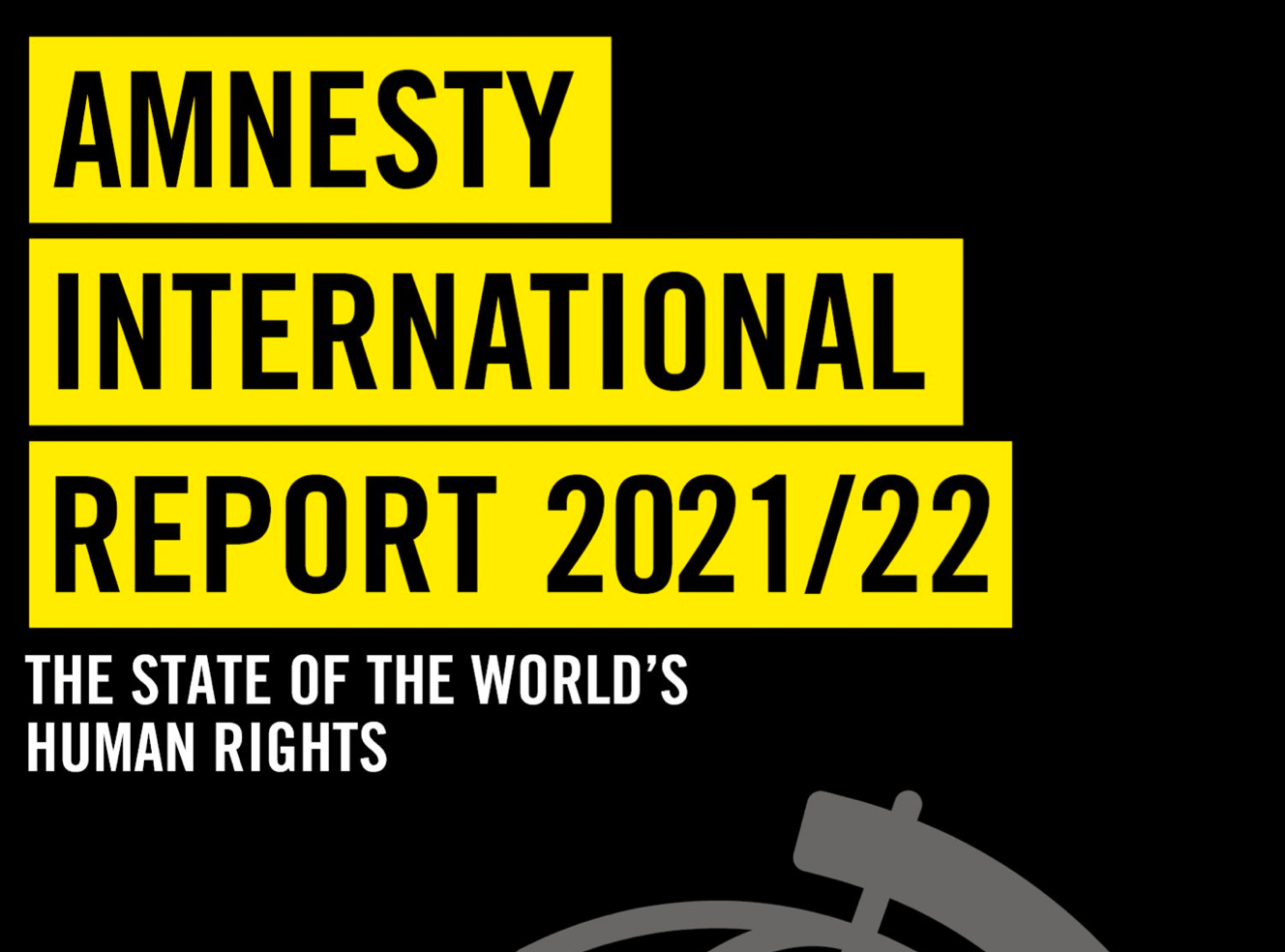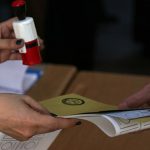An annual report by Amnesty International (AI) on the state of human rights in the world reveals that serious and credible allegations of torture and other ill-treatment were made in Turkey last year, also stating that deep flaws in Turkey’s judicial system were not addressed in 2021.
“Opposition politicians, journalists, human rights defenders and others faced baseless investigations, prosecutions and convictions,” the watchdog said.
The report underlined that withdrawal from the Istanbul Convention has deprived women and girls of a vital instrument of protection from all forms of violence, without discrimination.
The Council of Europe (CoE) Convention on Preventing and Combating Violence against Women and Domestic Violence, better known as the Istanbul Convention, is an international accord designed to protect women’s rights and prevent domestic violence in societies and was opened for signature by member countries of the CoE in 2011.
Turkish President Recep Tayyip Erdoğan sparked outrage in Turkey and the international community after he issued a decree in March 2021 that pulled the country out of the international treaty, which requires governments to adopt legislation prosecuting perpetrators of domestic violence and similar abuse as well as marital rape and female genital mutilation.
The new Human Rights Action Plan and two judicial reform packages prepared by the Turkish Justice Ministry failed to address deep flaws in the judiciary, AI said.
According to Amnesty, torture and other ill-treatment were also reported in 2021, citing the cases of Mehmet Sıddık Meşe, Osman Şiban and Garibe Gezer.
Gezer, an inmate who alleged that she was beaten and sexually harassed by prison guards in Kocaeli’s Kandıra Prison, was found dead in her cell in December. In a letter sent to the Peoples’ Democratic Party (HDP), her brother Haşim, an inmate in Elazığ Prison, said Garibe told him in a phone call how she was abused physically and sexually by prison guards.
The report also mentioned the latest victims of the Turkish government’s practice of enforced disappearance in 2021. “Hüseyin Galip Küçüközyiğit, former legal adviser at the Prime Ministry accused of links with the Fettullah Gülen movement, reappeared in Ankara prison in September, nine months after he was forcibly disappeared. The authorities had denied that he was in official custody. Details of his fate and whereabouts during those months remained unknown at the end of the year. The fate and whereabouts of Yusuf Bilge Tunç, missing since August 2019, remained unknown at the end of the year.”
Tunç disappeared in Ankara on August 6, 2019 in broad daylight, leaving no trace behind. His father, Mustafa, said neither the police nor the prosecutor had cooperated with the family in finding their son.
The annual report included information on a court case to close the HDP and a five-year political ban for hundreds of its executives and members. Turkey’s Constitutional Court accepted an indictment drafted by a prosecutor seeking to disband the pro-Kurdish opposition party on terrorism- charges in June 2021. The top court in February gave the HDP an additional 60 days to prepare its defense in the closure case.
“In December, the Council of Europe’s Committee of Ministers formally notified Turkey of its intention to initiate infringement proceedings for its failure to comply with the ECtHR judgment to release Osman Kavala,” the report said.
Sixty-four-year-old civil society leader Kavala, who has been kept in jail since 2017 without conviction of any crime, is accused of financing 2013 anti-government protests and playing a role in a 2016 coup attempt. Turkey refuses to release Kavala despite a binding judgment of the ECtHR in December 2019 finding that his detention for allegedly directing and financing the Gezi Park protests of 2013 and for alleged involvement in the failed coup of July 2016 was in pursuance of an “ulterior motive,” that of silencing him as a human rights defender.
“The new Law on the Prevention of the Financing of the Proliferation of Weapons of Mass Destruction negatively affected the work of civil society organizations. In October, the Financial Action Task Force added Turkey to its “grey list” for increased monitoring,” the report said.
Source:Stockholm Center for Freedom (SCF)
***Show us some LOVE by sharing it!***



